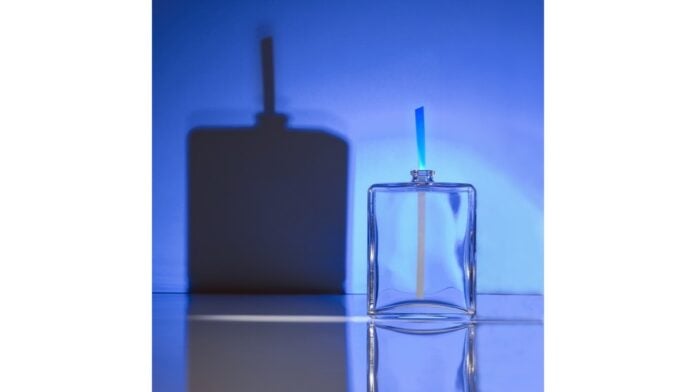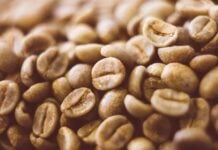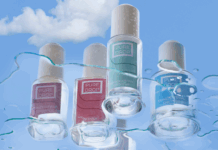French start-up Nexdot, which specializes in applications based on quantum dot research, has developed a new varnish for treating bottles to protect them from UV rays. The aim is to reduce the use of additives in the world of perfumery and cosmetics.
Its U v ltimate varnish was tested on an industrial production line on September 19, 2024 at a major glassmaker supplying major international players in the perfume and luxury goods industries.
Capitalizing on more than 10 years' research into quantum dots, Nexdot designs innovative varnishes incorporating nano-crystals that absorb ultra-violet rays (A, B and C), without impacting the visible light spectrum. Treated bottles remain transparent, with no dominant color.
A clear varnish to filter UV rays and reduce the use of additives
The most important molecules used by perfumers and cosmetics manufacturers, especially those of natural origin, are rapidly degraded when exposed to UV radiation. Formulators incorporate additives into their formulas to protect and stabilize fragile active molecules. Without protection, a perfume, for example, would lose its color after prolonged exposure to sunlight, and its olfactory signature would be altered.
Although organic anti-UV varnishes are already applied to certain bottles to reduce exposure to UV rays, their effectiveness is not sufficient to allow a significant reduction in the use of additives designed to protect UV-sensitive molecules (odor, color, active ingredients) in formulations.
Nexdot varnishes, which filter UV rays through mineral particles, offer an alternative to organic anti-UV varnishes. The absorbency of the varnishes developed by the company can be custom-tuned to be total over the entire UV spectrum, with a very steep cut-off slope that avoids overflow into blue light.
"Applied to the outside of perfume bottles, for example, without contact with the contents, they are non-toxic, environmentally friendly, and their perfect transparency means that bottles can be recycled without any impact on the industrial chain.the company promises. With over 1,500 vials processed by the production line, the test demonstrated Nexdot's ability to offer this revolutionary solution for protecting formulations against ultraviolet radiation on a very large scale."
Founded in 2010 on the initiative of Maurice Guillou (ex DGA of Spie batignolles) and Benoit Dubertret (CNRS-ESPCI research director), Nexdot aims to develop industrial applications in France based on the results of Benoit Dubertret's fundamental research into quantum dots, or quantum boxes (Nobel Prize in Chemistry 2023). The company, whose laboratory and pilot lines are based in Romainville (93), has filed over 40 patent families since its creation, exploring several fields of application for these nano-crystals.








